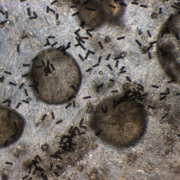16 February
2021
European countries are part of the plastic pollution problem in South East Asian countries because shady dealers are free to do what they like. This was yet again the finding of a recent broadcast by Pointer in cooperation with investigative journalists (in Dutch).
The
plastics exported from the Netherlands are often plastics that are rejected for
recycling. In countries with cheap labour, the plastics are separated by hand.
The usable items are recycled there and the rest, estimated to be around 30%,
is incinerated or illegally dumped. This creates huge environmental problems.
The
Netherlands turns a blind eye because, on paper, there is nothing wrong.
ADMITTEDLY,
MORE STRINGENT RULES AS OF 1 JANUARY …
The Treaty
of Basel covers the international trade in dangerous substances. The signatory
countries agreed additional rules governing the trade in plastics in 2019. Only
clean plastic waste that can be recycled immediately may be traded freely
across the world.
The new regulations give low-income countries the option to refuse unwanted plastic waste. The Human Environment and Transport Inspectorate (ILT) also says (in Dutch) that it can now monitor exports more easily.
However,
the Pointer broadcast shows that the system has a lot of loopholes.
… BUT
EFFECTIVE CONTROL SEEMS IMPOSSIBLE
Enforcement
is difficult because the containers do not always contain what is stated in
their papers. A second problem is that the recipient recycling company, in
Indonesia for example, may have the appropriate permits, but there is no way to
check from the Netherlands if that plastic really is recycled by the company.
In practice, it seems that plastic is often sold under the table to illegal
recycling companies.
In the
programme, the ILT admits that it is impossible to check where the exported
plastic waste from the Netherlands ends up. Last summer, Interpol signalled a strong rise in the illegal trade
in plastic waste.
PERVERSE STIMULI
Companies
make plastic waste available for recycling in the Netherlands. If a plastics
company is not approved because the plastic is too dirty or hard to separate,
it is incinerated. The supplier has to pay for this though. It is thus too
tempting for suppliers to sell plastics on to dealers, thereby earning some
money instead of spending it.
As a dealer, you can simply register and then sell a lot of plastic on sites such as scrap.com. The buyers know plenty of tricks to avoid customs. The chance of being caught in the port of Antwerp, for example, is small (also read this article (in Dutch) by one of the investigative journalists).
Dealers
told Pointer that “The trick is to use the right customs code. Imagine that you
have a load of dirty plastic among which is 10% clean plastic. You then use the
clean plastic’s code.” Another trick is to have the first two rows of a
container filled with clean plastic and the rest of the container filled with
dirty plastic – “the clean stuff in the front, and the dirty stuff at the
back”.
VAN VELDHOVEN
HAD PREVIOUS PLEADED FOR A BAN
In June 2019 at the G20, Secretary of State Van Veldhoven (D66 political party) advocated a ban on these exports. ‘Western countries should not be exporting plastic waste anymore. Not to Malaysia, not to Indonesia, not anywhere. We should be able to process our own plastic waste rather than shipping it to other parts of the world. We need to set down agreements to this end at the international level.’
The only
way to stop this underhanded business is to ban all exports of plastic waste
outside the European Union. On top of that, exports within the European Union
need to meet more stringent regulations so that no more illegal plastic waste
is dumped in countries such as Poland anymore.
Some of the
benefits of making it obligatory for countries to process their own plastic
waste are:
- an end to contributing to plastic
pollution in other countries;
- improved in-country recycling
capacity;
- greater use of recyclates (so that
the quantity of new plastic decreases); and
- a reduction in the quantity of hard
to recycle packaging (and hence stimulate the production of less single-use
packaging).
EU WASTE SHIPMENT REGULATION
There is an exceptional
opportunity this year to ban the export of plastic waste. The European Commission is
reviewing the Waste Shipment Regulation.
Zero Waste Europe has come up
with recommendations. PSF is
calling on the Dutch Government to support these.
You might
also be interested in:





